The Check-In: Planning a trip to Antarctica, cherry blossoms in bloom, and more
Your weekend guide to all things travel

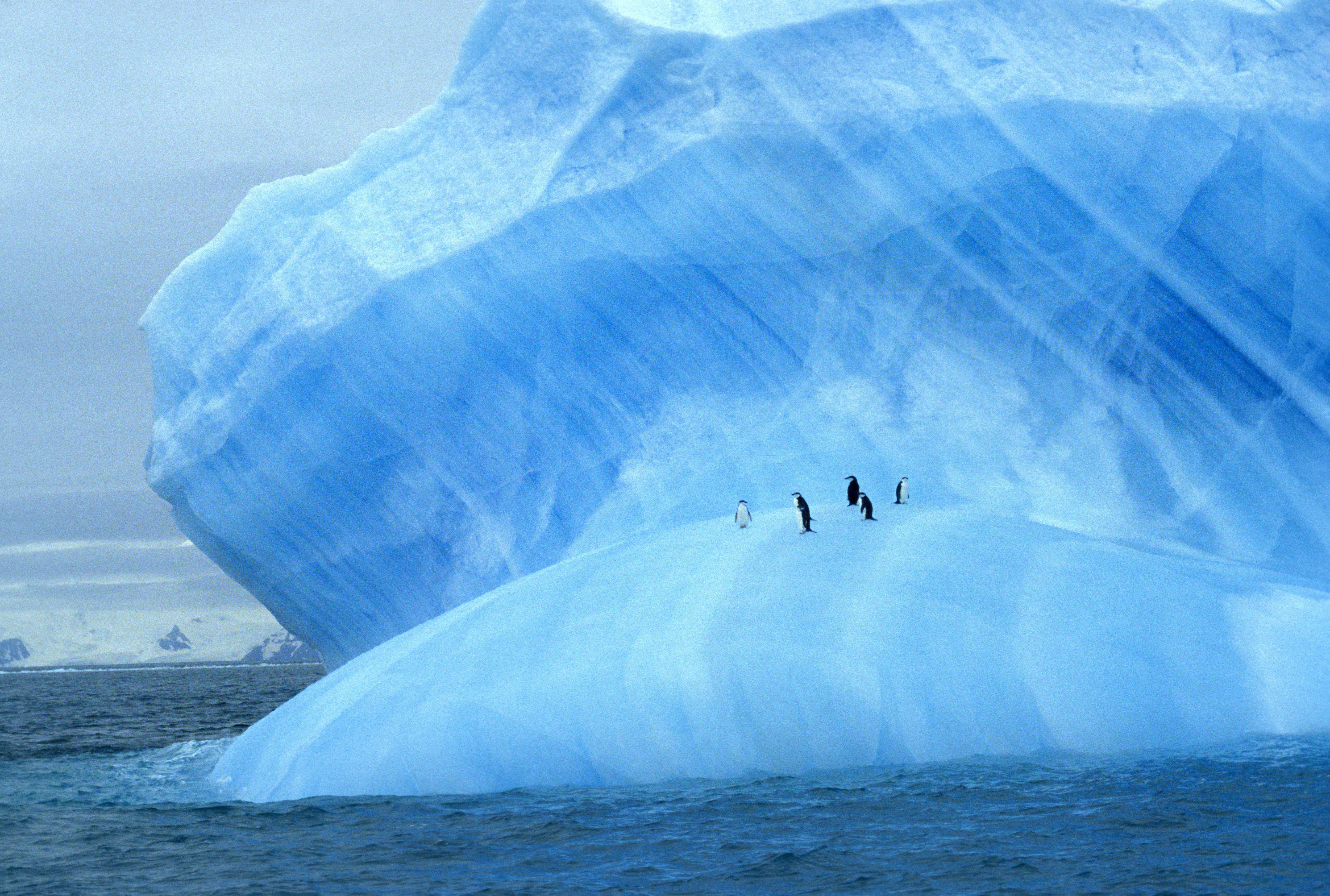
A free daily email with the biggest news stories of the day – and the best features from TheWeek.com
You are now subscribed
Your newsletter sign-up was successful
Welcome to The Check-In, our weekend feature focusing on all things travel.
Everything you need to know about planning an Antarctica adventure
Antarctica. For the seasoned traveler, it's often the pinnacle of their journeys, the final continent left to conquer. For the newly-intrepid, it might be their first big expedition. It doesn't matter when or how they get there, ask anyone who has gone to Antarctica and they'll tell you: Nothing else compares.
"What's amazing is everybody has a different reaction to Antarctica," Ben Lyons, CEO of EYOS, told The Week. "What is really fascinating for me is the profound impact it has on people." He has guided travelers to all corners of the world, but found that "nowhere has as strong an impact or emotional force that Antarctica does. It lingers with them for years."
The Week
Escape your echo chamber. Get the facts behind the news, plus analysis from multiple perspectives.

Sign up for The Week's Free Newsletters
From our morning news briefing to a weekly Good News Newsletter, get the best of The Week delivered directly to your inbox.
From our morning news briefing to a weekly Good News Newsletter, get the best of The Week delivered directly to your inbox.
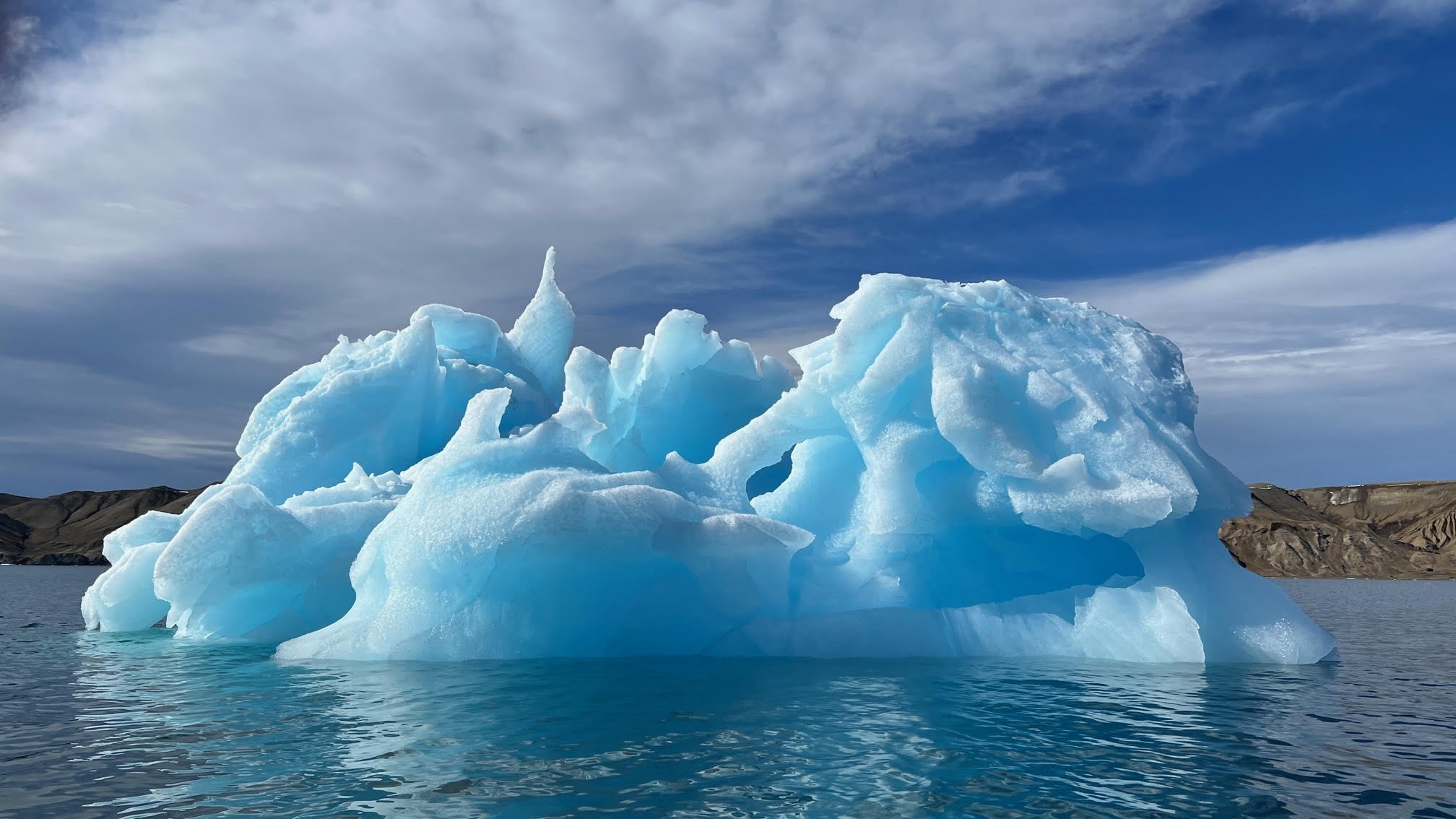
There are a lot of things to consider when planning a trip to Antarctica, from when to book to how to get there. Here are some tips, reflections, and words of advice from travel professionals who know Antarctica.
How soon should I start planning my trip?
It's never too early to start thinking about going, and doing some preliminary research. Once you're ready to commit, try to book about a year in advance. If there's a specific suite you want on a ship, and there's only a limited number of this type available, you'll need to give yourself some additional time. It's possible to book just a few months ahead, but the hard part at this point could be finding flights, as you won't be heading to large airports with tons of options, and they'll likely be more expensive.
When it comes to cruise fares, the general rule is the companies start off with their best prices, and as the ship fills the promotions are phased out. However, while there might not be a price reduction, there are often value added offers, like free excursions or specialty dining.
A free daily email with the biggest news stories of the day – and the best features from TheWeek.com
For most people, a trip to Antarctica is a "once-in-a-lifetime experience, and not a trip you want to book on your own," Rob Clabbers, president of Q Cruise + Travel in Chicago, told The Week. "This is where you want to contact someone who has been there before." Look for a trusted travel adviser or expedition company, and talk to friends and relatives who may have been to Antarctica and can recommend someone.
What's the best time of year to go?
Antarctica's summer is November through March, and during this time, the sea ice has melted enough for ships to get through. There's sunlight all day, and while it's definitely not warm, the summer temperature averages 33 to 36 degrees Fahrenheit. From a wildlife perspective, if you want to see penguin chicks hatching, visit between December and February, but if it's whales you want to spot, the peak time is February and March.
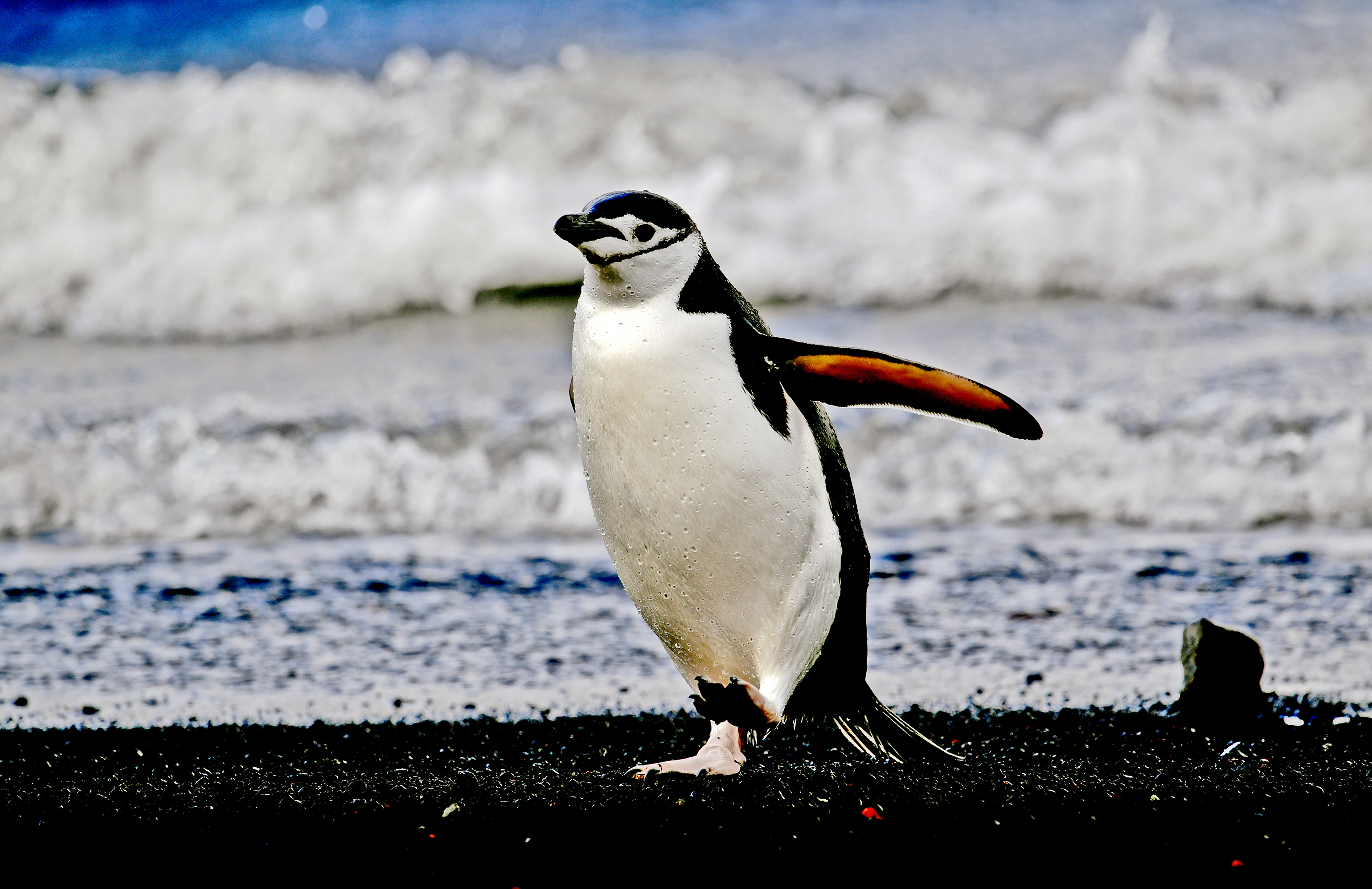
How do I get to Antarctica?
Most travelers make their way to Ushuaia in the southern tip of Argentina or Punta Arenas in Chile, where they board their ships or hop on a charter plane. There are also some cruises that leave from New Zealand and Australia and a charter plane bringing travelers from Cape Town.
I've heard crossing the Drake Passage can be rough — is there a way to avoid it?
The Drake Passage is the body of water between South America's Cape Horn and Antarctica's South Shetland Islands, and because of the convergence of oceans and different temperatures, it can be a wild ride through here. Ships have stabilizers that help make the journey a little smoother, and it's important to remember that not every crossing is a rough one — that's why there's the expression "The Drake Lake or the Drake Shake."
If you're really concerned, talk to your doctor before you go about medication and bands to put on your pressure points — or go all out and take one of the charter planes that flies to Antarctica, skipping the need to go through the Drake Passage. Clabbers finds that the "Drake Passage is part of the experience, and gets you ready for the adventure you're about to embark on."
Will the weather dictate what I see?
Definitely. Angela Pierson, senior vice president of sales and marketing for Wallace Pierson Travel in Amelia Island, Florida, told The Week captains routinely have to change their schedules and itineraries due to the ever-changing weather. "It's exciting, and you feel like you're on a true expedition with this change of pace," she added.
What's the difference between a traditional cruise and an expedition cruise?
Traditional cruise ships can hold several thousand passengers, while expedition cruises are much smaller, and usually cap out at around 250 passengers. Under regulations put in place by the International Association of Antarctica Tour Operators (IAATO), cruise ships with more 500 passengers cannot land any passengers while in Antarctic waters; these larger ships instead provide a scenic sailing from a distance, usually as part of a South America or world itinerary.
Expedition vessels are able to maneuver through narrow and shallow areas, and ice-class ships have reinforced hulls to go through the ice. Regulations are also in place for expeditions, and only 100 guests are allowed to land at one site at the same time. This is to protect Antarctica and prevent invasive species from being introduced. If you want to have as much time on land as possible, go with a smaller ship.
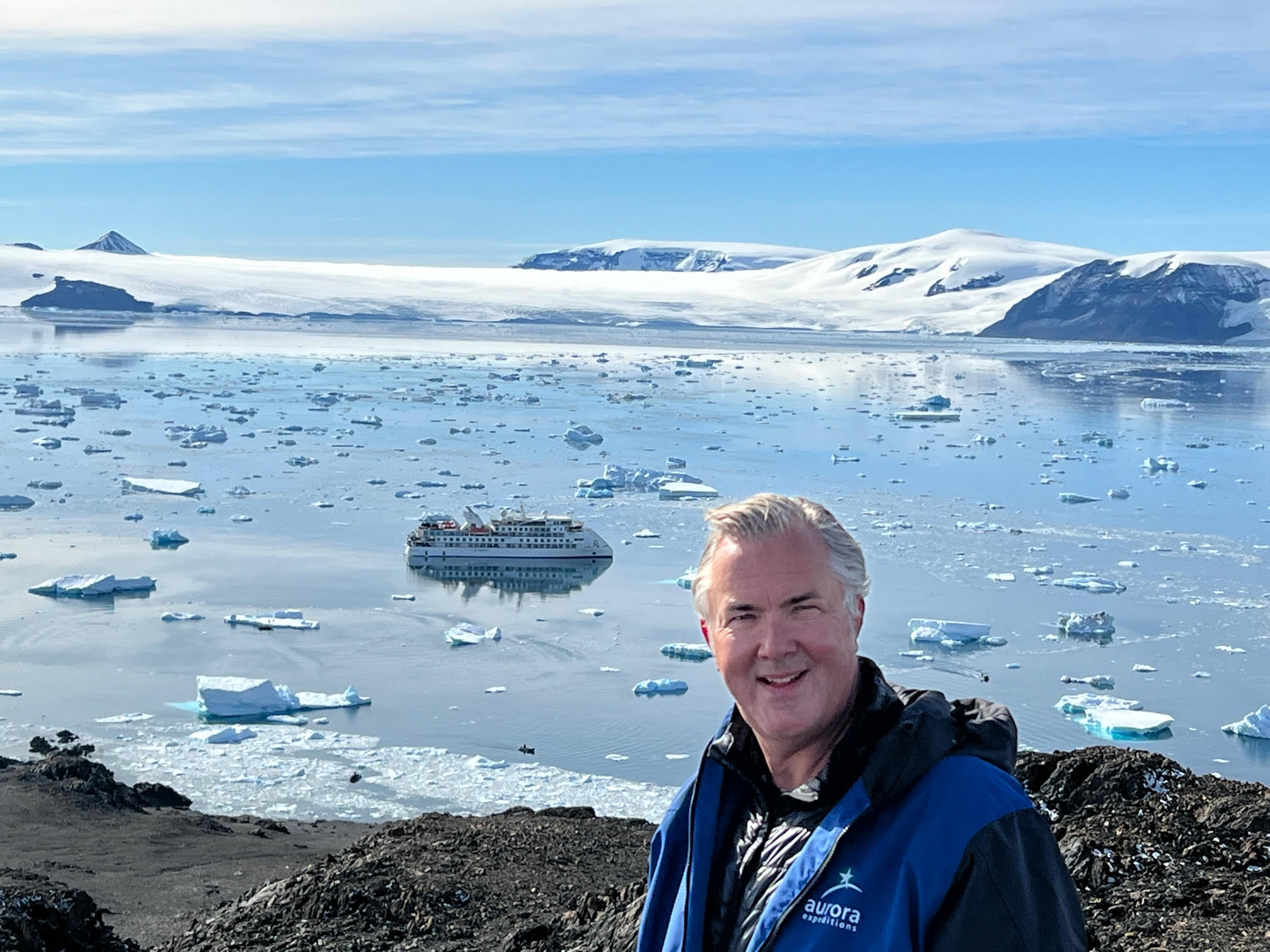
Can yachts go to Antarctica?
Yes. The benefit of an expedition yacht charter is that, because it's a small group — or even just a couple — the crew can tailor the experience specifically to their liking, Lyons said. His company, EYOS, arranges luxury expedition yacht charters, and while the weather will always play a role in how the day goes, if the captain knows certain things about the passengers, like that they want to see whales, "we're going to make that the focus," Lyons said. More groups have been requesting heli-skiing excursions, which is "an incredible experience," Lyons said, and he recently went to an area with clients where they were "pretty confident nobody's ever been to that spot before."
What can I expect once I'm there?
You'll see wildlife like penguins, birds, whales, and seals, and ice — lots of ice. Massive icebergs will stretch for miles, "crystalline blue and unlike any color you've seen before," Lyons said. "The ice for me is what's captivating ... when you see that ice you know you're in Antarctica." The "magnitude of ice" left Pierson nearly speechless, and it was at times so quiet "it felt like you should hold your breath," she said.
Each ship is equipped with different items, but activities could include kayaking, paddleboarding, and even snorkeling. It's easy to forget about everything when you're out in nature — going on a Zodiac boat through the ice fields, seeing the different shapes and icebergs as big as buildings, is "truly amazing," Clabbers said. Listening closely, you'll hear the Antarctic symphony of ice clinking then popping as it melts, penguin calls, and whales inhaling and exhaling.
"It is enchanting," Lyons said. "It's something where the more you go, the more enchanted you become with it." He visits Antarctica every year, and has found that by regularly coming back to a place he knows "intimately, you appreciate it more, and pick up on new things."
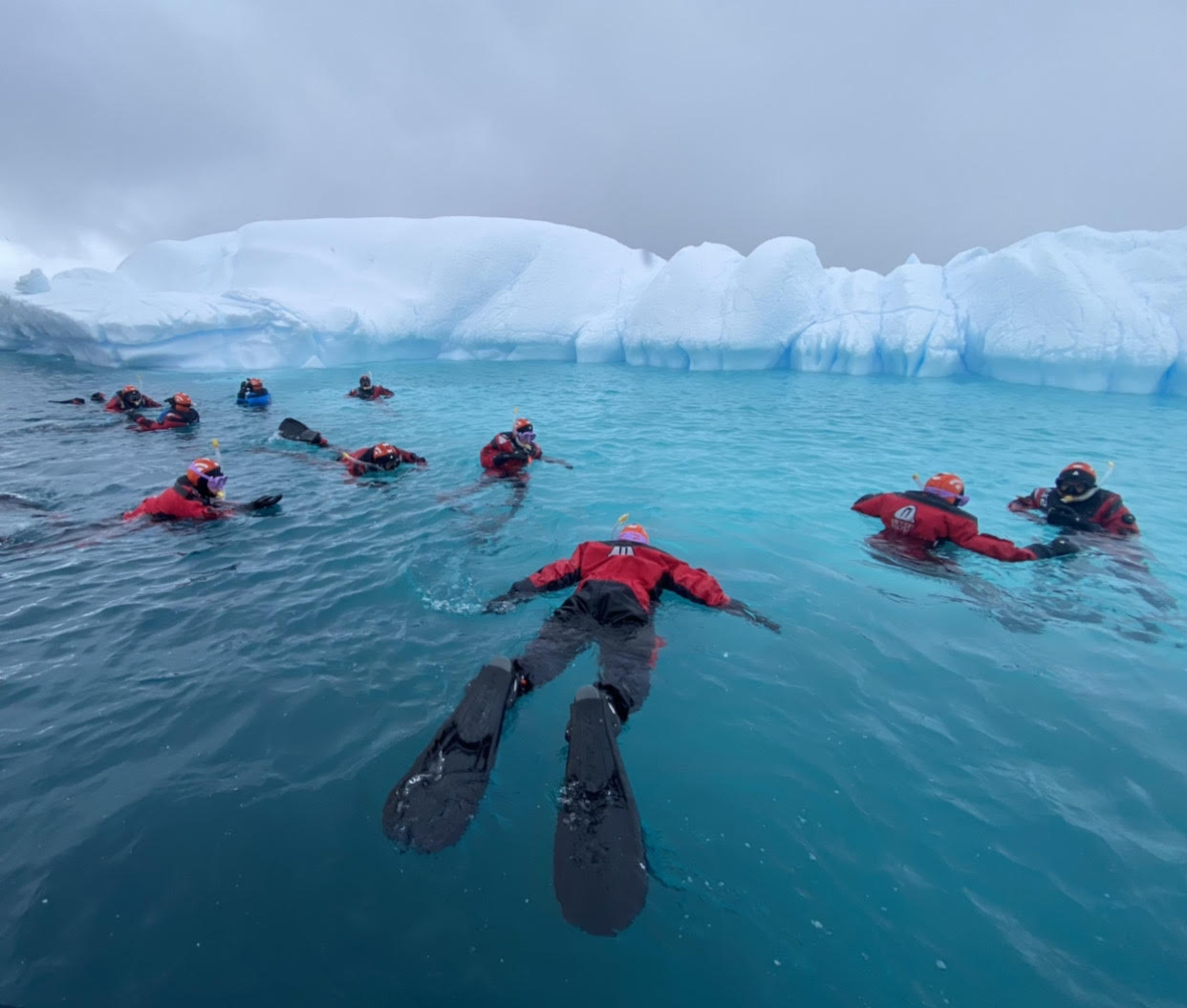
Is Antarctica a good place to visit with kids?
Absolutely. In December 2019, Pierson took a Silversea Expedition Cruise to Antarctica, along with her children, then 9 and 7, husband, mother, and in-laws. On board the ship, her kids were able to interact with naturalists, asking questions about the ice, snow, and wildlife. Once on land, they observed the penguins and birds they learned about, and had the opportunity to explore along the shore. If families can take the time off work and school to go to Antarctica, they'll leave with "lifelong memories," Pierson said.
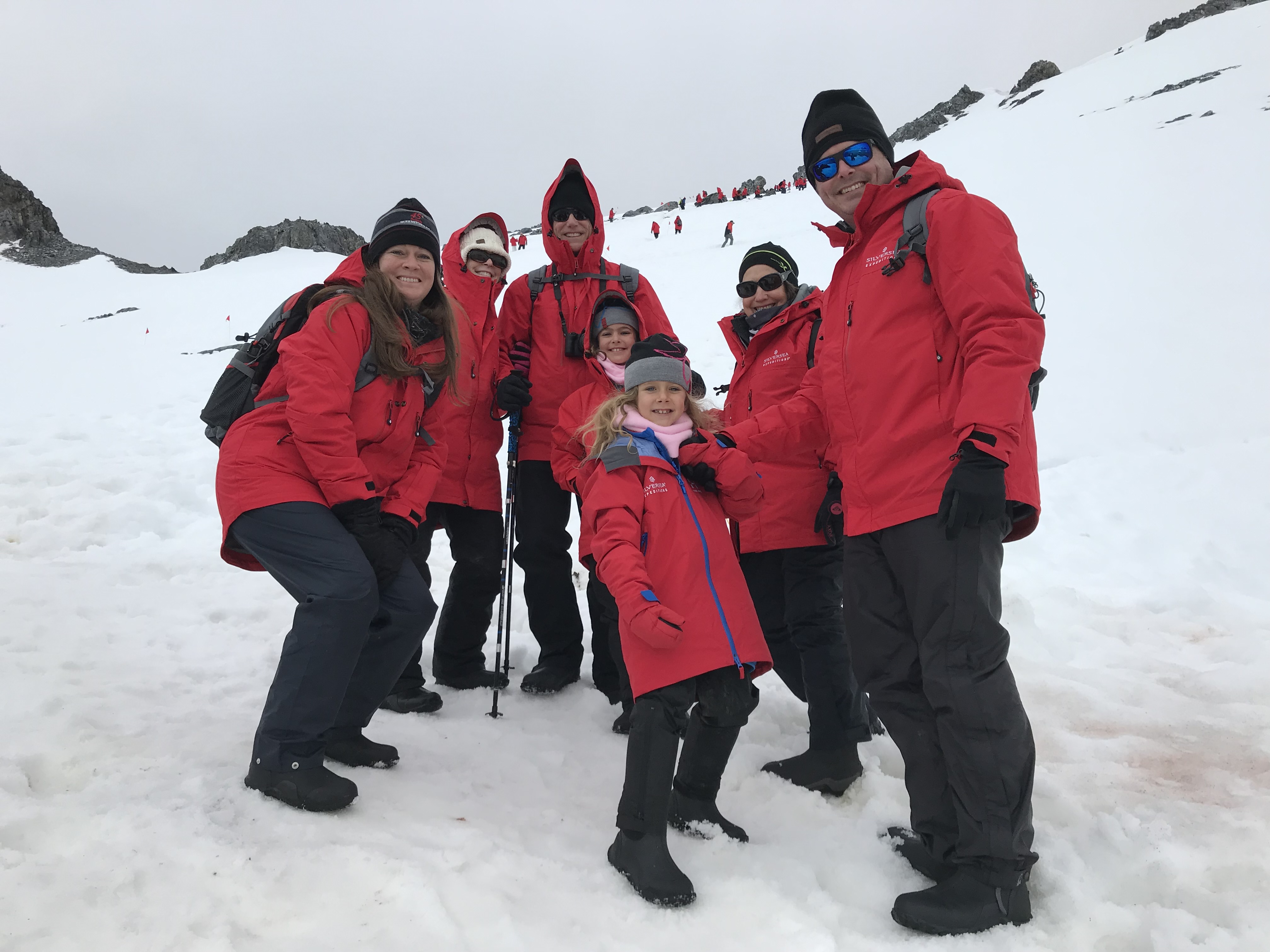
What else should I keep in mind about visiting Antarctica?
If you have health concerns, check with your doctor before heading to Antarctica; while ships do have medical teams, you'll still be a long way from a hospital. No one has to get off the ship if they don't want to, but if you are looking to spend time on land, you'll need to be able to swing your legs to get in and out of the Zodiac boats. If you have mobility issues, check with your cruise line to see what they offer for people who need assistance. Also, because everyone is at the whim of the weather, it's important to remember that plans can change in an instant. "You have to be able to go with the flow," Clabbers said.
What do I pack?
Many companies will provide parkas for guests to stay warm or have boots available to rent. When packing, don't forget waterproof pants and gloves, as well as beanies and scarves. Layering is a must, so you'll want to have items like thermal underwear, a fleece jacket, leggings, and long-sleeve shirts. If there are laundry facilities on board your ship, you won't have to go overboard packing, since you can just wash your clothes.
Is it ethical to go to Antarctica?
People who are concerned about climate change and burning fossil fuels may have concerns over the ethics of going to Antarctica. The IAATO promotes responsible travel to Antarctica, and its members have agreed that their activities must have less than a minor or transitory impact on the environment. Before landing on shore, travelers go through a decontamination process to make sure they are not bringing an invasive species to Antarctica, and this usually involves having every inch of their clothing, down to the Velcro straps, vacuumed.
Dr. James McClintock, a marine scientist at Palmer Station in Antarctica, told Lonely Planet he used to be conflicted about tourism in Antarctica, but after 10 years of research and serving as a lecturer on cruises, he has found "the benefits far outweigh the negatives. Yes, there is a carbon footprint to cruises to Antarctica. But, I believe the guests who listen enthusiastically to the lectures on climate change and its impact in Antarctica and elsewhere offset the cost." Once they're home, they are "ambassadors of Antarctica," he added, and "more appreciative of the urgent need to address global climate change by reaching out to their elected representatives on this issue."
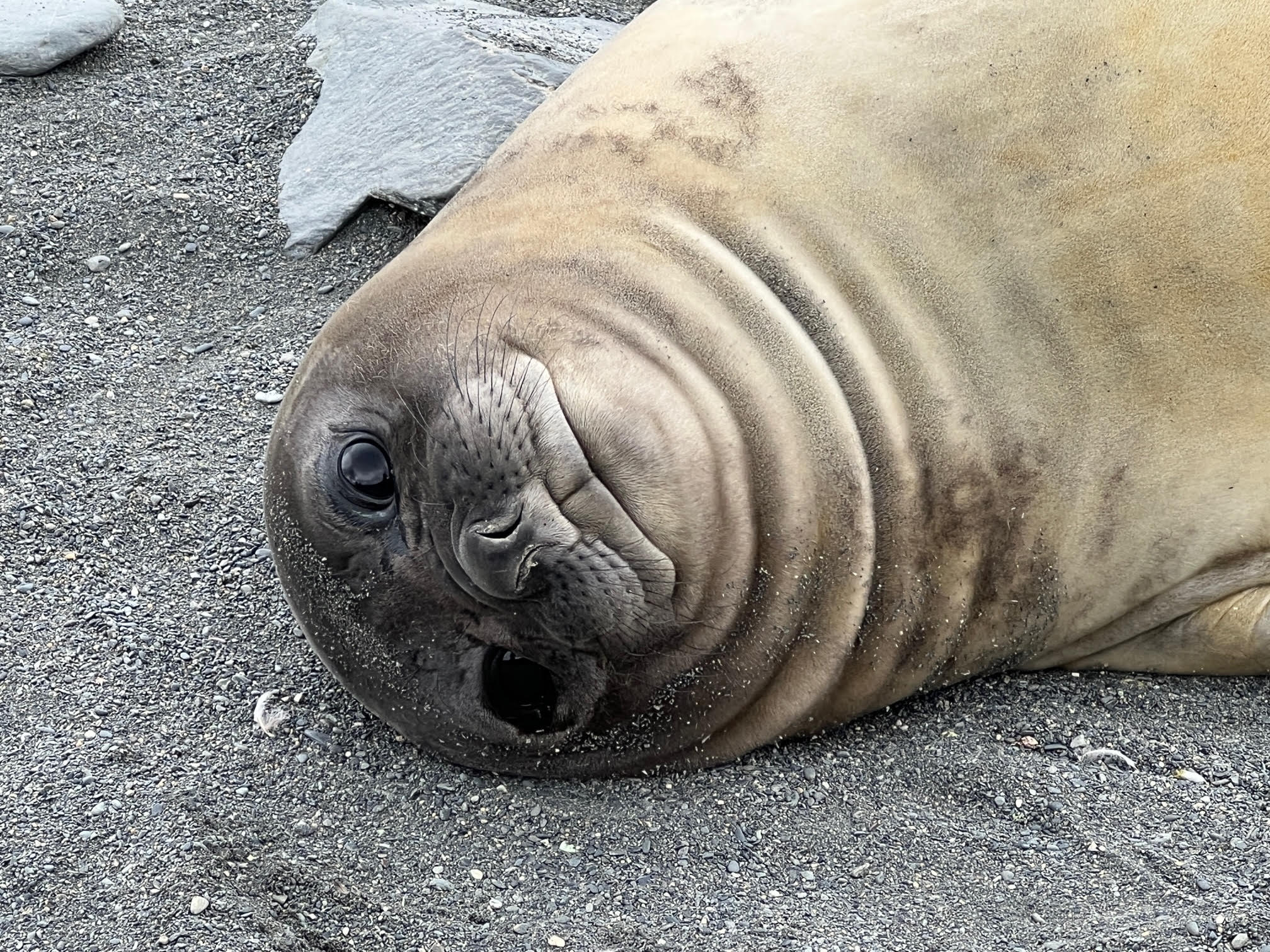
Travel news roundup
- Japan is expecting heavy crowds this spring and into the summer, The Washington Post reports, thanks to the country reopening its borders in October — the Japan Tourism Organization expects 20 million people to visit this year.
- You never know — the person you strike up a conversation with during a flight delay could end up becoming one of your good friends. That's what happened to Andrea Rubakovic and Hollie Savitt, who met at Heathrow Airport in 2010 when some snow shut down all operations. Read about what sparked their friendship and how their bond has strengthened over the years at CNN.
- Want to learn more about California's Native American communities? Visit Native California is a new website with guides to everything from pow wows to rock art sites across the state. Visitors can also learn more about different tribes and Native-owned businesses, like restaurants and shops.

Plan accordingly: Upcoming events to add to your calendar
Now is the perfect time to see the cherry blossoms in Washington, D.C. The National Cherry Blossom Festival is underway through April 16, and event organizers say that as of March 24, the blossoms are puffy white, with the next stage being peak bloom (this is when 70 percent of the blossoms open). In 1912, cherry trees were given as a gift to the people of the United States from the people of Japan, and the festival is a tribute to this friendship and those gorgeous blooms.
There are multiple events tied to the festival, like the opening ceremony on March 25, an "artistic celebration" featuring special performances by artists from the U.S. and Japan. (All tickets have been claimed, but the ceremony will be livestreamed on YouTube.) Other signature events include the Blossom Kite Festival on March 26; Petalpalooza, with an art walk and fireworks show, on April 8; and the National Cherry Blossom Festival Parade on April 15.
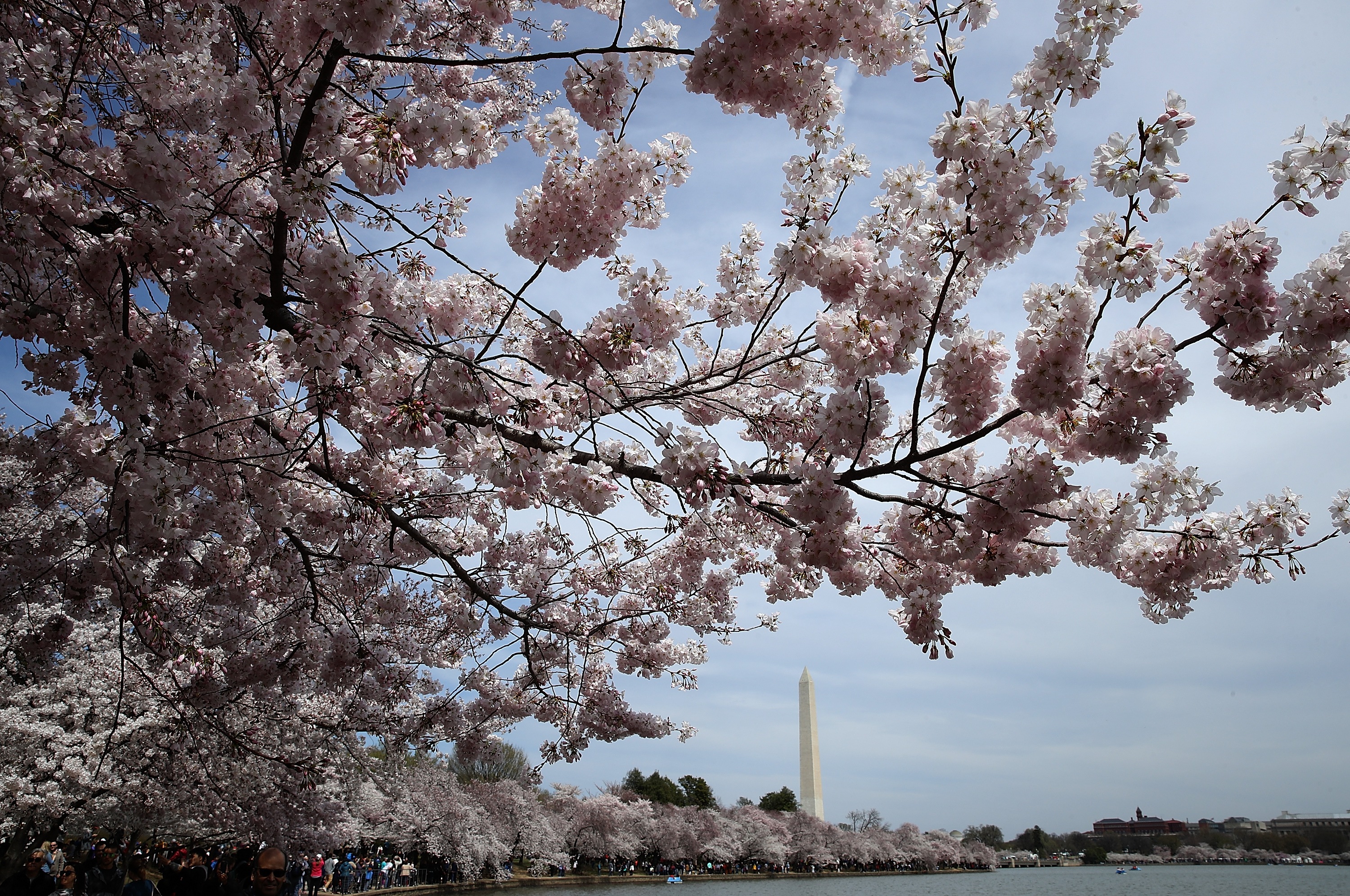
Catherine Garcia has worked as a senior writer at The Week since 2014. Her writing and reporting have appeared in Entertainment Weekly, The New York Times, Wirecutter, NBC News and "The Book of Jezebel," among others. She's a graduate of the University of Redlands and the Columbia University Graduate School of Journalism.
-
 How the FCC’s ‘equal time’ rule works
How the FCC’s ‘equal time’ rule worksIn the Spotlight The law is at the heart of the Colbert-CBS conflict
-
 What is the endgame in the DHS shutdown?
What is the endgame in the DHS shutdown?Today’s Big Question Democrats want to rein in ICE’s immigration crackdown
-
 ‘Poor time management isn’t just an inconvenience’
‘Poor time management isn’t just an inconvenience’Instant Opinion Opinion, comment and editorials of the day
